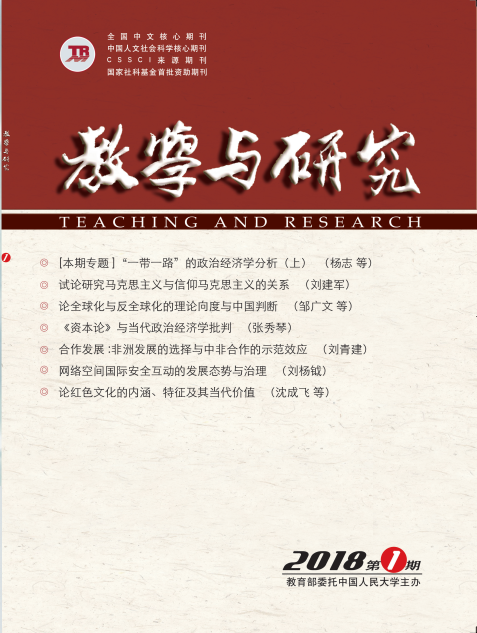|
|
An Analysis of Inclusive Globalization Theory and the Leading Path under the Background of Chinas “The Belt and Road” Initiative#br#
Gong Xiao-ying, Chen Jian
2018, 52 (1):
15-22.
DOI:
The inclusive globalization under the background of “The Belt and Road” initiative, is proposed to deal with the global development imbalances caused by the domination of the traditional Western globalization. At present, both the government and the scholars have realized that the inclusive connotation of “The Belt and Road” initiative can achieve different globalization. But there is still little research on in the academic circles concerning the connotation, the characteristics of globalization and inclusiveness of “The Belt and Road” initiative leading the inclusive globalization. Based on the theoretical definition of inclusiveness, globalization, mutual benefit, fairness and inclusiveness, this paper analyzes the dilemma of the development of inclusive globalization, such as the lack of trust and the constraints of big powers. This paper expounds that China, through “The Belt and Road” initiative, can promote the multilateral trading system, opening up inclusive E trade era, eliminate trade barriers of the other countries along the belt and road path, which will help promote the development of inclusive globalization.
Related Articles |
Metrics
|



